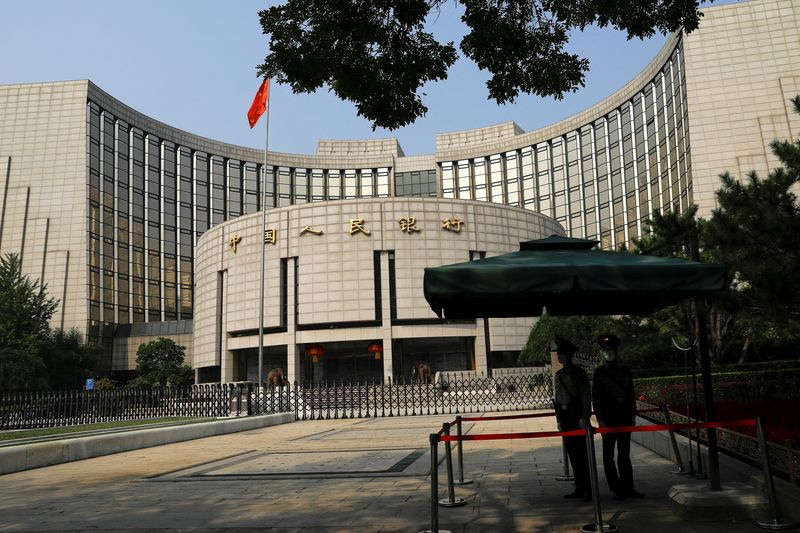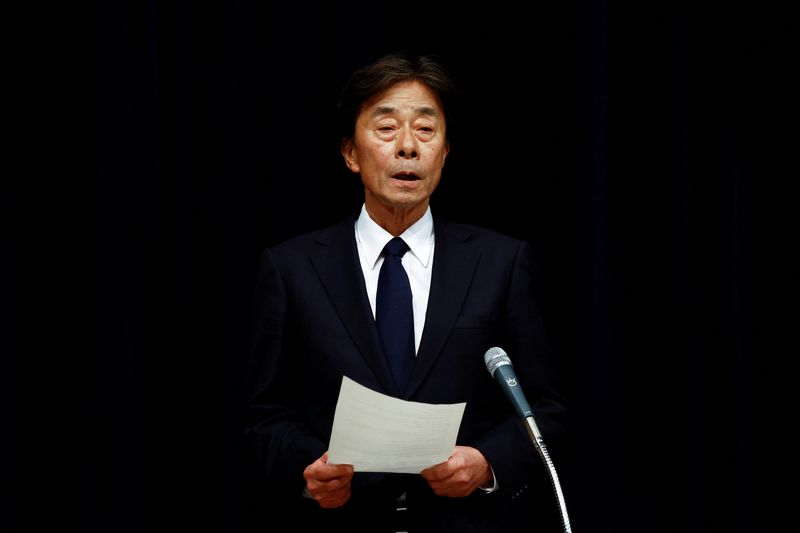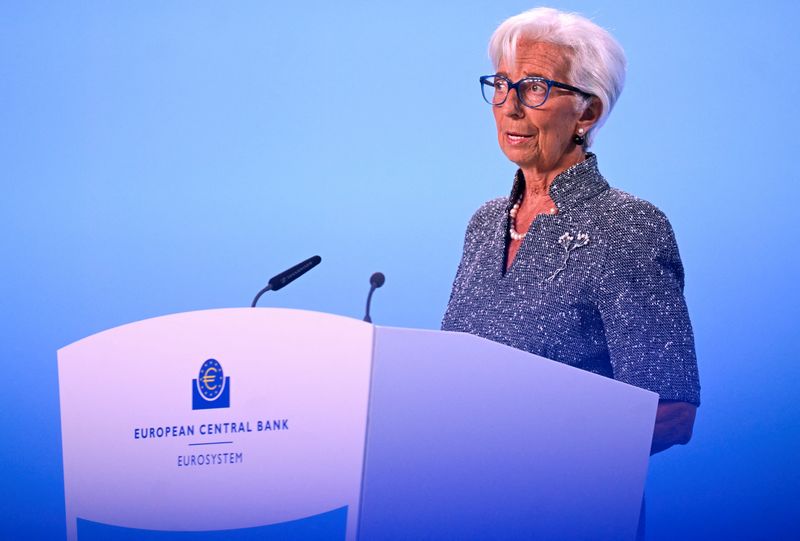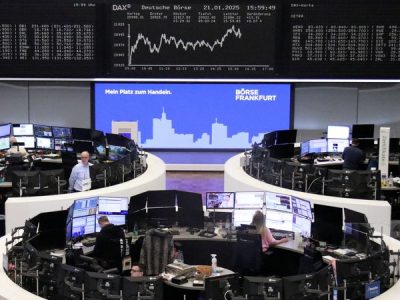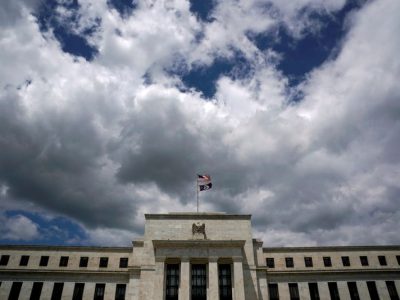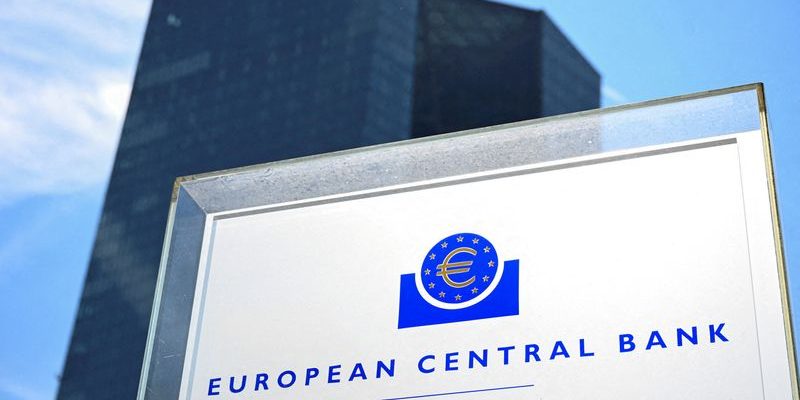
By Balazs Koranyi
FRANKFURT (Reuters) – European Central Bank policymakers are increasingly at odds on the outlook for growth, a rift that could shape the rate cut debate for months with some fearing a recession and others focusing on lingering inflation pressures, sources close to the debate said.
The ECB cut interest rates in June and is almost certain to ease again in September in a nod to slowing price growth. However, policy decisions further down the road are likely to be more complicated as the euro zone economy enters a more precarious state, conversations with close to a dozen sources suggest.
The core of the debate is over how weakness in economic growth and a potential recession will impact inflation – the bank’s ultimate focus – as it tries to cut inflation to 2% by the end of 2025.
Although much of the discussion is private, conversations with sources with direct knowledge of it reveal diverging views.
An ECB spokesperson declined to comment.
Policy doves, who remain in the minority, argue the economy is weaker than thought, recession risks are on the rise and firms that have hoarded labour are starting to cut vacancies, leaving the jobs market softer.
Once employment declines, so does disposable income, quickly eroding consumption and leaving a self-reinforcing downturn.
“This would weaken price pressures quicker than we now forecast, so I think the risk of returning to below-target inflation is real,” one of the sources, who asked not to be named, said.
This would suggest the central bank is behind the curve in cutting interest rates and buffering the economy, supporting the case for quicker interest rate cuts, they say.
Inflation, down to 2.2% in August, is now forecast to rise again towards the end of the year and coming back to 2% only in late 2025.
RECESSION?
Conservatives, or hawks in central banking parlance, who have dominated the policy debate since the start of rapid rate hikes in 2022, argue that actual growth figures persistently outperform weak survey results and the economy is holding up.
Consumption is robust, the bloc just enjoyed a superb tourism season and construction is finally rebounding, so growth remains respectable.
Moreover, wage growth remains far above levels consistent with a 2% inflation target, so real incomes are rebounding quickly and should continue to insulate the economy.
While industry is in a deep downturn and could drag Germany into a recession, this is more a structural issue that could take years to resolve, so monetary policy has little role, many of the sources said.
All this builds the case for slow rate cuts, perhaps one every quarter, until the ECB is certain inflation is heading back to 2%.
Hawks are also likely to fight any policy easing that would push into 2026 the date the inflation target is met, since that could jeopardize the ECB’s credibility, the sources said.
ECB board member Isabel Schnabel, a prominent policy conservative, argues that inflation concerns should trump growth.
“Monetary policy should remain focused on bringing inflation back to our target in a timely manner,” she said in a speech on Friday. “While risks to growth have increased, a soft landing still looks more likely than a recession.”
OCTOBER
The rift is unlikely to impact September’s policy decision since there is already widespread consensus to cut rates, the sources said.
But it could affect how ECB President Christine Lagarde communicates the decision, shifting expectations for the October meeting.
The bank is unlikely to discard its “meeting by meeting” approach to setting policy so there will be no commitment about October, but doves want Lagarde to highlight growth risks and signal that back-to-back cuts are not excluded.
Hawks fear such a message would heighten market expectations too much, putting the ECB in a bind. Investors already see a 40% to 50% chance of an October cut and such a dovish message would only firm up those bets.
“I think quarterly cuts serve us well and the data just don’t support picking up this pace,” a third source said.
While governors will agree on the text of the policy statement, Lagarde enjoys some freedom in delivering the message and can choose to emphasize certain points.
Economists also appear to take a mixed view on the outlook, even if most agree that it is far from bright.
“Even if the U.S. is to avoid recession, Europe might not,” Macquarie strategist Thierry Wizman said.
Wizman argued that weak Chinese demand for European goods exacerbates the downturn, while the potential impact on political stability from the rise of the far right in France and Germany could also weigh on consumer sentiment.
ABN Amro, meanwhile, expects continued, if meagre, growth.
“The euro zone economic recovery is struggling to gain momentum,” ABN said. “High savings rate suggests consumers are less willing to spend real income gains, especially in France, the Netherlands and Germany.”


